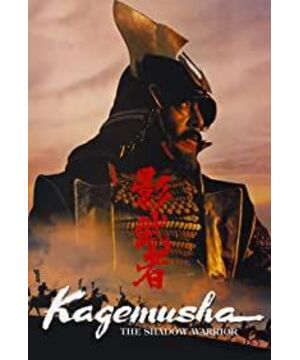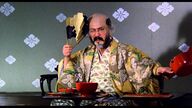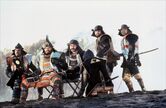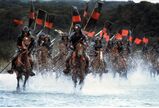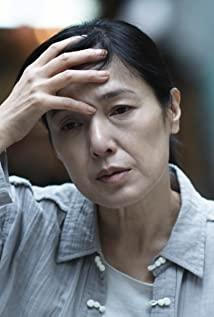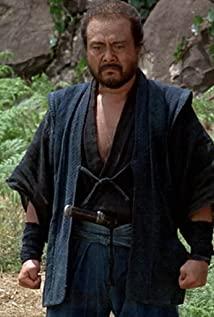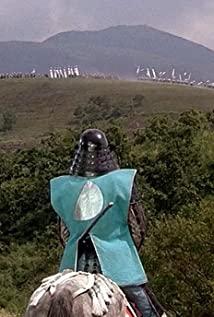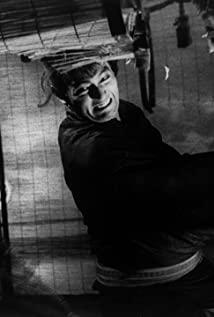At this time, he met Coppola who was visiting in Japan. For Coppola, Kurosawa is an idol. So he pulled his friend again, and another Kurosawa fan, George Lucas, came to meet Kurosawa.
At this time, Coppola had just finished filming "Apocalypse Now". Before that, there were "The Godfather", "The Godfather II" and "The Great Conspiracy of Eavesdropping." George Lucas finished filming "Star Wars: A New Hope" and "Star Wars: The Empire Strikes Back" is also about to be released. This is when these two people are most proud of. However, the master they admired came to an end.
So they decided to help their predecessors and help him raise funds to shoot a new film. They were the producer of the new film, and Fox invested in Dongbao to shoot.
Then, Kurosawa made his first color film "Shadow Warrior". A great movie, even among Kurosawa's own works, can be regarded as a very good work.
In "Shadow Warrior", you can see the quality inherited from "Seven Samurai" (one of the greatest works in the entire film history).
Kurosawa always emphasized that a good movie must first be interesting and easy to understand. This is true of "Seven Samurai" and so is "Shadow Warrior." The story of the movie is wonderful, fascinating, and can't stop you, you can only watch it all in one go. And what he used to catch people is not just the ups and downs of the plot, but more importantly the conflict between the character's character and the environment, and the twists and turns of the character's fate. In the emergence of character and destiny, "Shadow Warrior" is better than the group drama "Seven Samurai".
Kurosawa is the master of the picture and the master of rhythm. In "Shadow Warrior", the use of the lens has been so perfect and impeccable.
But more importantly, Kurosawa's thoughts expressed in the movie. Great movies often have different angles of interpretation, and different people can read different things in the same movie. Both "Seven Samurai" and "Shadow Warrior" can be interpreted differently from individual to political.
The Shadow Warrior was originally just an uncultivated thief and was sentenced to death. Because his appearance resembled the hero Takeda Shingen, he was taken close by Takeda. After Takeda's accidental death, in order to maintain the huge empire, the servants concealed the news of the lord's death, replaced Takeda Shingen with shadow warriors, and crossed the sea. The huge empire and army are like a machine, which is no longer controlled by humans, but it can still operate as usual.
The Shadow Warrior was originally just a rogue thief, but after being carefully dressed up, his posture can also deter the officials. Only a minor grandson and a fierce warhorse can see through his identity.
Are the capable people and strangers in the Manchu Dynasty inferior to a child and a beast? Although the shadow samurai looks exactly like Takeda and is careful in his actions, it is not without flaws. It's just that he sits in that position, it represents the supreme power, and holds the power of life and death for everyone in the seat. The officials didn't even dare to look at him, how dare to doubt him. Therefore, power is the best disguise.
Although the shadow warrior seems to be in power, in fact it is just bluffing. Not only the innermost retainer knew the truth of the incident, but the guards and servants around him also knew his details. In fact, the shadow warrior only acted according to the instructions of the guards around him.
So the entire huge empire is only the shadow warrior looking forward to it, but the shadow warrior listens to the guards' every move. This is a wonderful irony of the power structure of a huge bureaucratic organization. The entire empire relies on such a hypocritical illusion to maintain her strength. Once the puppet is exposed, the entire empire will collapse. Hypocrisy, complete hypocrisy.
However, "Shadow Warrior" does not simply mock the hypocrisy of power, the film is more to show the alienation of power to people. The little servants were disrespectful to the shadow warrior at first, but as soon as the shadow warrior put on an expression of no anger and prestige, all the little servants sat upright.
This respectful attitude is not so much awe of the shadow warrior as it is awe of the entire organizational structure. This kind of awe makes them see the stability of the organization much higher than the individual themselves. Therefore, the red armor guard knew that the shadow warrior was a fake. He whispered to the shadow warrior while arbitrarily conveying orders to the army, but as soon as there was a danger, he immediately filed in front of the shadow warrior, because the existence of the organization was far greater than him. Your own life is more important.
This kind of power or organization's alienation of individuals is the most typical of shadow warriors themselves. He was originally a free and easy thief, and he behaved casually, intending to get a vote and leave. However, he inexplicably obeyed this collective organization and stayed voluntarily, unsmiling, pretending, and enduring the mental torture of becoming someone else and losing himself.
There is no benefit to this self-masochistic behavior. In fact, in the end, he is likely to be killed. But he persisted in order to maintain the entire illusory empire. And gradually adapted to this kind of life, like a fish in water. In the end, when his identity was dismantled and driven out of the castle, he couldn't adapt to his original identity.
This person has been completely alienated by the organization, and his personality and purpose of his life have been completely erased. In the end he even rushed single-handedly towards the enemies of the empire. His life has been integrated with the empire, like a banner in the water, helplessly following the waves. However, Kurosawa pointed out calmly that the empire he was desperately defending was actually just a phantom that would collapse with one click.
It seems that this kind of abandoning oneself for the sake of the collective has a deep-rooted tradition in East Asia. Today, many people still think that abandoning individual interests in exchange for collective interests is a correct and glorious path. In many places, you can still see inhuman behavior under the guidance of such a demonized ideology, such as arranging handicap in a game, or a military madman claiming to sacrifice half of China to fight a nuclear war.
Kurosawa Akira's "Shadow Warrior" reminds us that the empire maintained is just an illusory shadow, and the humanity that is obliterated is irreparable damage.
In addition, unlike "Seven Samurai", as Kurosawa Akira's first color film, the color of "Shadow Samurai" is very bold and impactful, but there is no trace of deliberate carving. This kind of color is quite different from the classic lens application and plain storytelling method in his works, but the huge impact is the same. Later films such as "Chaos" and "Dream" also have similarities in the use of colors.
IMDB scored 7.9 (5886 people voted), I scored 9 points.
http://likeyesterday.spaces.live.com
View more about Kagemusha reviews


